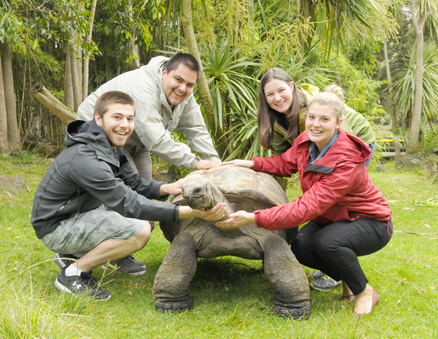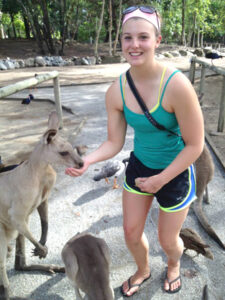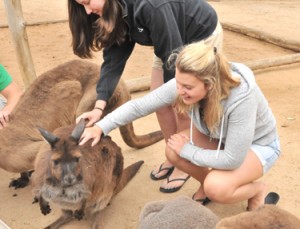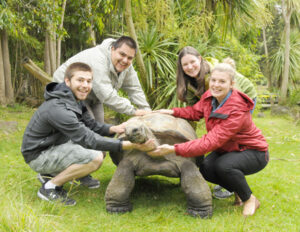
By Ann Needle

Today’s college students are increasingly concerned with assuring their educations land them a job with a future. Often, this means concentrating on majors in technology or science. But, at her college’s request, one Stow college junior recently spent more than 3 months doing something completely different from her major in these promising fields.
Earlier this school year, Aubrie Vannasse got to travel across the world to do something outside of her Biotechnical Engineering major, thanks to Worcester Polytechnic Institute’s interactive qualifying project. As Vannasse explained it, this unique WPI program calls for every junior to complete a project, of at least a semester long, in something “totally unrelated to our majors.” According to WPI, the project also must be designed to help solve an issue facing the global community.
As with an estimated two-thirds of WPI’s juniors, Vannasse chose to head for one of the school’s 35 off-campus centers around the world, this one in Melbourne, Australia. Vannasse mentioned she paid her travel costs, though WPI covered the cost of her apartment.
For 14 weeks beginning in September, Vannasse worked on her project titled “Zoo Outcomes” studying how children on educational tours at the Royal Melbourne Zoo best learned information presented on the animals. The study involved teaching methods of the Zoo’s Learning Education Team, which leads the group tour for school children, she added. She worked on her project in small student teams, along with a WPI Melbourne faculty member.
Comparing which methods of bringing children around the zoo worked best educationally was the center of Vannasse’s project.

She explained that she talked to students after taking different types of tours. Looking at the Zoo’s traditional teaching models, Vannasse said some students took a zoo-leader tour, others a self-lead group tour. And, another group of students toured the Zoo through a new model, which directed students to “teach themselves” by wandering the Zoo on their own. These children marked down observations while touring, along with questions they could put to an educator during periodic meetings throughout the day.
At the start of each day, Vannasse noted that she interviewed incoming students about what they were looking forward to, and followed them throughout the day to watch their eye contact and listen to their opinions. “Unfortunately, with 4 to 8 year olds, they’re copycats,” often mimicking each others’ questions and remarks, she observed.
Vannassee said that, while her study concluded that the self-guided group tours appeared to work best in imparting information, the new method of touring on their own has greatest potential for the long run.
In a country where conservation goals are held in high esteem, the many conservation lessons the Melbourne Zoo imparts to visiting students were a substantial part of her study, Vannesse remarked. She often measured how students absorbed information such as how orangutans are being destroyed by palm oil foresters, and how elephants are hunted for their ivory tusks.

Lessons Beyond the Zoo
Of course, the Southern Hemisphere has a lot to offer a student used to the east coast of the US. The Melbourne Zoo contains about five koalas, plus a collection of various types of kangaroos and wallabies, Vannasse noted. Given her visit fell during Melbourne’s spring-into-summer seasonal period, Vannasse mentioned getting to know the unique (to the US) phenomenon of “beach barbeques for Christmas.” Still, the summer temperature, she commented, “Gets hot, but it’s a lot like New England.”
There also was the unexpected, such as the rich collection of Australian and other, international accents attached to the city, she said. Living near Melbourne’s Chinatown meant experiencing the Asian-European culture of the area—including the cutting-edge fashions. Fashion trends appearing in that area usually are headed for the US eventually, she noted. (Be warned; Vannasse cautioned that jelly shoes with high heels were popping up on her visit.)
Vannasse stressed that she remains firmly committed to Biotech as a major, with an internship lined up with a Lexington pharmaceutical company for this summer. But, she emphasized that WPI’s purpose with the program of getting students to think of working in the larger world appears successful. “The whole idea of [the project] is to work with people not in your major, and we definitely developed a lot of team skills,” she added.